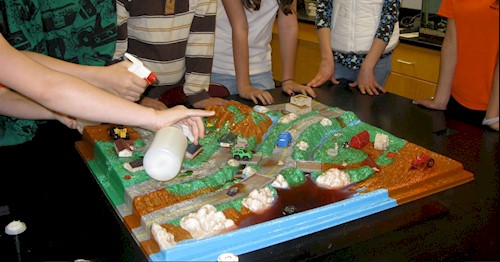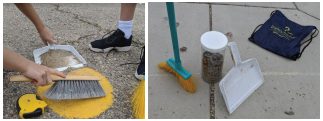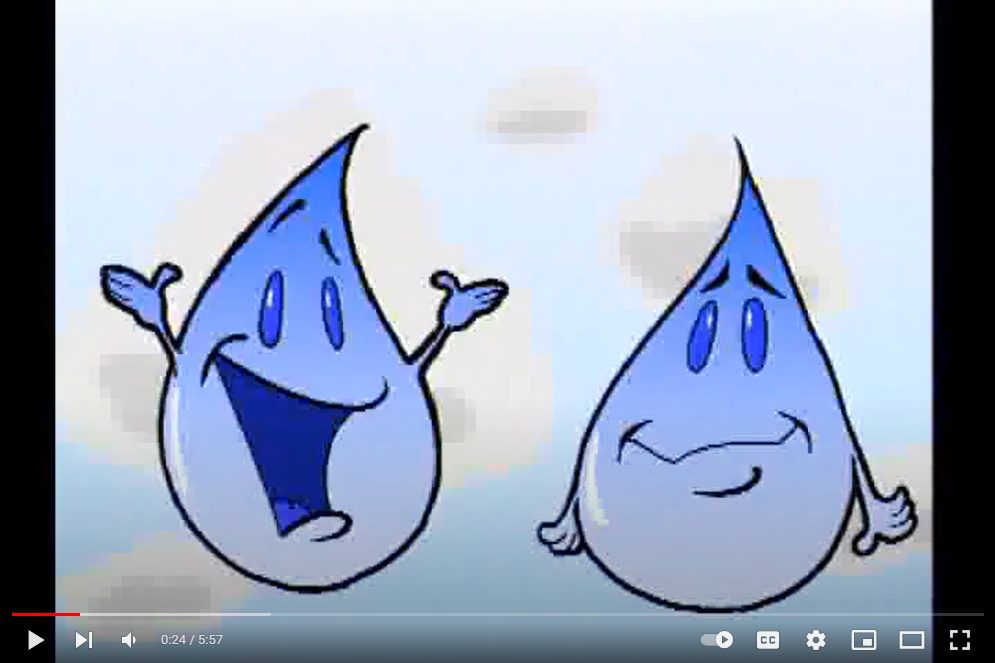At the District, we tell the story of water and its connection to our community in an effort to fulfill our mission of protecting public health and the environment. To help encourage and empower community members to protect this valuable resource, we’ve compiled these water education activities and resources for educators, teachers, community leaders and parents to use for group or individualized water education and outreach.
Lessons and Experiments

Enviroscape Model Loaner
An Enviroscape model is a fun tool to help people understand what a watershed is and the impacts our actions have on area lakes, rivers and streams. Dane County’s Land and Water Division has Enviroscape models available for check out by area teachers. Check-out is free and includes supplies and instructions needed to run the model. Reserve an Enviroscape model.
NSTA Hub
Wisconsin Standards for Science can be connected to water-related student projects at every grade level. National Science Teaching Association (NSTA) provides Next Generation Science Standards by topic and grade band, which are further broken down into columns of life science, earth & space science, and physical science.
Statewide Science Inquiry

Inquiry is a vital part of learning, as detailed in state academic standards for mathematics, environmental literacy and sustainability, social studies, and science. The Statewide Science Inquiry lesson asks students to mark off a paved-over area where water runs (like a parking lot) and sweep up what’s within the area multiple times through the year. Students look for patterns in what water carries from these areas into their waterways and watershed, with possible extension investigations of ecosystem impacts, chemical runoff impacts, and impacts on earth systems. View the project.
The Incredible Journey
Part of the Project WET national curriculum, “The Incredible Journey” lesson plan and game activity allow upper elementary and middle school students to interactively learn about the movement of water through the water cycle. Download the lesson plan and the accompanying resource sheet.
There’s No New Water
The “There’s No New Water” activity, developed by the Groundwater Foundation, is an activity for a variety of age groups to learn how much water is on the planet and where it is stored.
Water in a Watershed
In the “Water in a Watershed” activity from Dane County Ripple Effects, students in grades 4 to 9 participate and learn about watersheds, stormwater runoff and pollution by creating a watershed model.
We Are Water Protectors
The “We Are Water Protectors” activity kit helps people of all ages learn about ways to make an impact in your community and protect our waters in everyday life. The activity is inspired by the book by Carole Lindstrom, illustrated by Michaela Goade.
Videos and Digital Materials
Ask the StoryBots Episode
Log into your Netflix account, search Ask the StoryBots and view Season 3, Episode 8, What Happens When You Flush the Toilet? to learn about what happens when you flush and where waste goes.
Discover Water INTERACTIVE TOOL
Investigate and explore the water cycle, our watersheds and how to use water wisely with an interactive digital tool, Discover Water – The Role of Water in Our Lives, that works on computers and tablets. Translates to Spanish and Chinese as well.

District videos
Drip & Drop: Intended for younger audiences, Drip and Drop explain the life cycle of water from the water supply, through the common household, to the treatment plant, and back to the environment.
Water Recycled for Life: A 14-minute video that explains how wastewater is treated and reclaimed and recycled.
Virtual Tour: Explore the operations and processes of the Nine Springs Wastewater Treatment Plant online.
Let’s teach about salt Webinar
In the Wisconsin SaltWise “Let’s Teach About Salt” webinar, you’ll learn about two salt-related lesson plans that were developed by teachers, for teachers. Lexi Passante from the UW-Milwaukee Freshwater School of Science program presents a Data Nugget lesson, and Kevin Anderson from Wisconsin Department of Public Instruction provides an overview of the WATER: Statewide Inquiry lesson geared toward K-8 students. View the webinar.
Article compiled by Amy Steger






